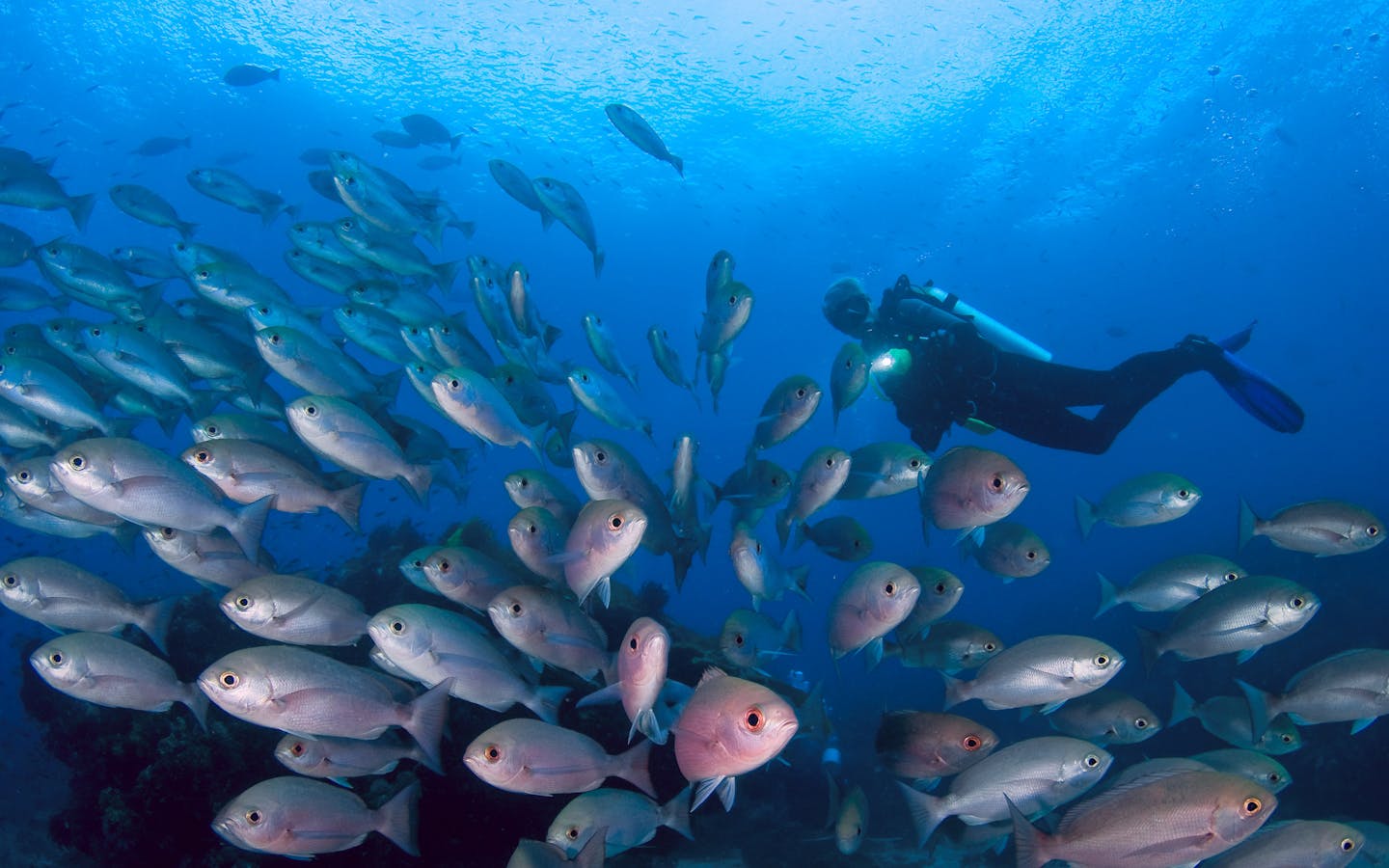Today’s global environmental challenges require breakthrough leadership.
Investing in emerging talent and the bold and life-changing ideas they generate are among the most important contributions we can make. Tom and I are delighted to establish the Friedman Fellowship Program for Science at Conservation International to support brilliant science minds as they pursue their dreams and find new solutions to these 21st-century challenges.Ann Friedman
Overview
Contact Info and Current Positions
For questions, please contact:
Kelsey Rosenbaum
Director of Global Exchanges + Technical Fellows Program
krosenbaum@conservation.org
(703) 341-2853
The Ann and Tom Friedman Fellows for Science Program recognizes and supports the key role that science plays in achieving Conservation International’s conservation goals. During the two-year program, the Friedman science fellows will have the opportunity to participate in a cohort program that will provide leadership training, site visits and mentoring. Supported by Conservation International’s vast network of staff and partners, they will effectively advance their research and its application on the ground in our priority regions around the world.
Conservation International is coming up with innovative ways to document and quantify the benefits of a healthy planet, and the Friedman fellows will contribute important scientific research to advance that work — and solve our greatest conservation challenges.
Current Fellows

Jonah Busch
Climate Economics Fellow
Jonah rejoins Conservation International as the organization’s Climate Economics Fellow, researching the benefits and costs of natural climate solutions — actions that conserve, restore or improve nature’s capacity to absorb and store carbon from the atmosphere. His work will help Conservation International and others identify cost-effective ways to combat climate change by protecting, managing and restoring natural ecosystems.
Jonah has published more than thirty scientific articles on climate, forests, biodiversity and sustainable development, and is the co-author of the book “Why Forests? Why Now? The Science, Economics, and Politics of Tropical Forests and Climate Change.” He has advised numerous governments and institutions on the design of climate and forest finance mechanisms. An environmental economist, Jonah holds a Ph.D. in economics and environmental science from the University of California, Santa Barbara.

Heidi Hawkins
Climate and Wild Spaces Fellow
Heidi joins Conservation International as the Climate and Wild Spaces Fellow, researching the value of wild spaces for cooling Earth’s climate. Her work will help Conservation International model and map soil carbon types as part of a suite of natural climate solutions. Working across diverse biomes, she will purposefully explore the contribution of wildlife and wild spaces to climate cooling. Heidi holds a Ph.D. in plant biology from Hohenheim University in Germany, with postdoctoral experience at the University of Cape Town, South Africa. She has guided the science portfolio at Conservation South Africa, a Conservation International affiliate, for more than a decade. Her works include over 40 scientific articles and book chapters, which have increased understanding of nutrient cycling, soil carbon and rangeland ecology — with several manuals and guidelines informing land-use practice.

Monica Noon
Decision Science & Natural Climate Solutions Fellow
Monica is dedicated to developing open-source geospatial solutions to monitor land degradation and support decision-making for natural climate solutions. Monica’s groundbreaking work to map irrecoverable carbon identified critical areas for protection to mitigate climate impacts by 2050. This work is instrumental in creating a sustainable future for our planet. Before joining Conservation International, Monica focused on water quality issues in the midwestern United States and served as an environmental Peace Corps Volunteer in Zambia. Her conservation journey began when managing a participatory forest management project, partnering with Indigenous peoples and local communities outside the Kasanka and Lavushi Manda National Parks in Zambia. Her diverse experiences continue to inform her current work, driving impactful change for our planet’s future.

